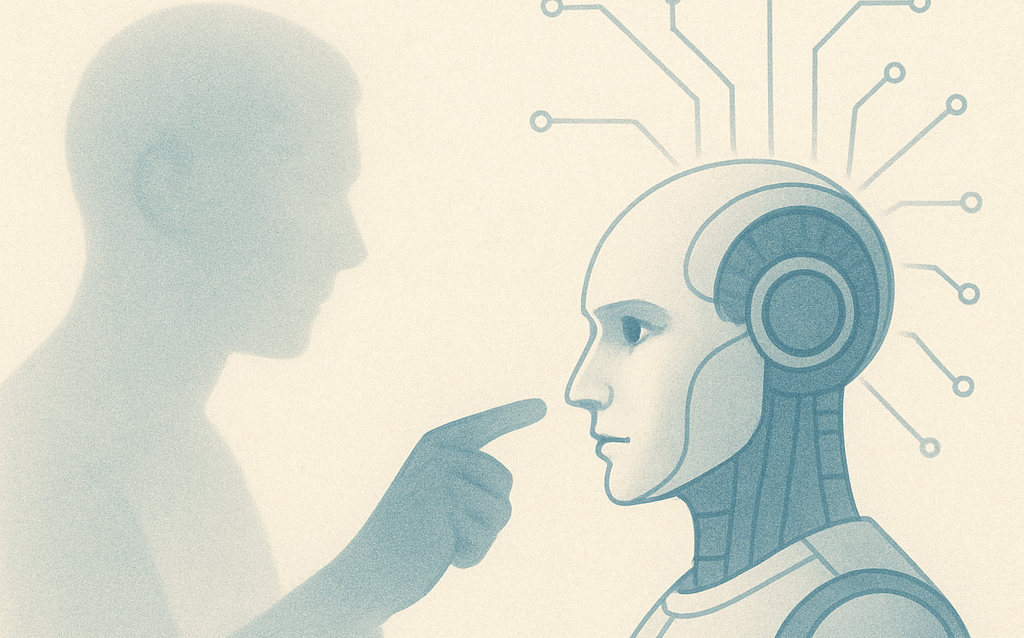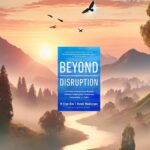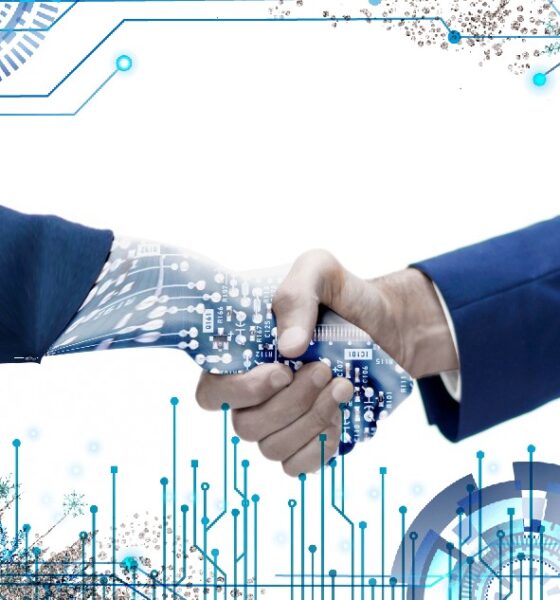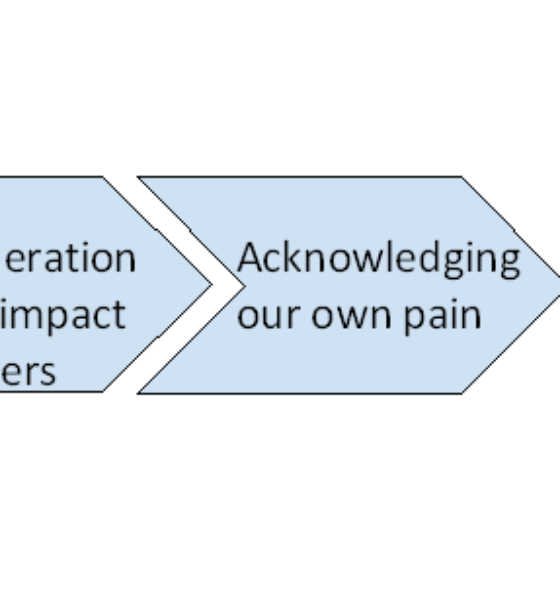Human in the age of AI – Human First, AI Second

1. The Pulse of the Moment
We live in a time where artificial intelligence is reshaping what it means to be intelligent, capable, and human. Amid all the excitement and anxiety about AI’s rise, a deeper question quietly emerges: “If AI can do everything, then what am I still here for?” This inquiry is more than fear. It’s a longing to stay relevant, not just in our work but in our sense of self. This blog is a call—gentle yet urgent—to put humanity first before technology. We must reclaim our presence, compassion, and meaning in a world rapidly moving towards automation. In this evolving landscape, being human in the age of AI becomes not just a question but a responsibility.
2. The Mirror of AI: Not a Threat, But a Reflection
Perhaps we’re asking the wrong question when we wonder, “Is AI replacing us?”
The real question might be, what part of us has already been replaced—or abandoned?
AI doesn’t only take over labor. It replicates what we’ve practiced for decades:
- The relentless chase for efficiency
- The outsourcing of memory
- The automation of relationships with templated replies and emoji reactions
AI is, in essence, a mirror—reflecting both our productive and distracted selves.
We trained machines to think like us. In doing so, we started to think more like machines.
Ask yourself:
- Think about the last time you allowed yourself to truly absorb a piece of writing—not skimming to finish, but letting it move you.
Recall a moment when, instead of rushing to search for answers online, you simply sat with a question and allowed it to unfold.
Consider the last conversation where you listened with your whole being—not to prepare your reply, but to genuinely understand the other person.
AI may take over tasks. But first, it shows us what we’ve already surrendered.
This is an opportunity. Like a mirror that reflects the truth, AI can wake us up—not to be more machine-like, but to be more fully human in the age of AI.
3. The Boat and the Storm: A Metaphor for Our Times
Imagine the world as an open ocean engulfed in a storm.
Winds of disruption blow—AI acceleration, geopolitical shifts, climate anxiety, and social fragmentation. Many of us feel like we’re in a small boat with a broken compass, waves growing taller around us. But it’s not the wind that determines your direction. It’s the anchor that holds you.
That anchor is within.
- Presence
- Self-awareness
- Integrity
- Connection
- The depth of your being—not just your ability to perform
While the world races ahead, the human soul still speaks in silence and slowness. It asks:
- Are you listening? grounded? Acting out of fear or clarity?
If AI is the wind, we must be the anchor—rooted in what no storm can shake. For every human in the age of AI, anchoring in presence becomes essential.
What the world needs now is not more content—but clarity. We should prioritize resonance over reaction, and we should prioritize presence over perfection.
4. What It Means to Be Human for Others
In a world flooded with AI-generated content, it’s tempting to reduce human value to output. But our real value lies in how we show up, not just what we do.
Throughout my journey—from college days in Tamil Nadu to late-night trains in Tokyo, from corporate business to quiet zazen—I’ve learned that, in both professional and personal life, what matters most is the space we hold. In my work, I led with efficiency. But what people remembered were not the deliverables—they remembered presence. I listened without judgment, chose tranquility over chaos, and quietly stood up for those in need.
At home, too—with my wife and children—what mattered was steadiness, not answers. Machines cannot offer emotional refuge. In storms, people seek not the fastest processor, but the quiet presence of someone who truly sees them.
So, I ask:
What do I mean to others beyond my tasks?
Sometimes I am.
- A source of steadiness
- A mirror of their worth
- A quiet challenger inviting reflection
- Simply a fellow human—navigating, listening, caring
This is our superpower as humans in the age of AI:
To be felt.
To matter.
We choose to show up, not because we are perfect.
5. What Machines Can’t Do: The Irreplaceable Human Core
AI can:
- Write symphonies
- Code in seconds
- Process vast patterns
But AI cannot:
- Wonder
- Suffer meaningfully
- Forgive or cry from the soul
- Stand still in awe before a sunset
In the pauses between actions, in the messiness of human connection, we find our true strength.
Machines crave clarity. Humans live with paradox.
We choose the harder right over the easier wrong—not because we’re programmed to, but because we’re moved by conscience.
| AI | Human |
| Processes data | Holds silence |
| Recognizes patterns | Responds to pain |
| Generates words | Offers presence |
| Learns from input | Grows from suffering |
| Follows logic | Lives with paradox |
| Simulates emotion | Feels and transforms |
These are not luxuries—they are the essentials for every human in the age of AI.
Yet, we risk outsourcing not just our tasks but ourselves. We risk becoming spectators of our lives.
6. Beyond Speed and Scale: Redefining Human Strength
Smarter, faster, and more disruptive qualities are no longer exclusive to humans. Machines outpace us.
We cannot win by competing at what AI does better.
Our strength now lies elsewhere:
- Slowing down
- Feeling fully
- Connecting deeply
- Leading with compassion
Being human in the age of AI means shifting from performance to presence—from scaling fast to deepening wisely.
7. Rediscovering Inner Technology: The Work We Must Do Now
We’ve mastered outer technology. Now it’s time to refine inner technology.
We need to cultivate
- Awareness
- Discernment
- Emotional clarity
- Inner balance
You cannot download these skills. We must develop them.
Having these abilities isn’t a philosophical luxury. It’s survival.
Practices That Ground Me in the Age of AI
1. Attention is the New Intelligence
Life flows where attention is directed.
My susokukan practice—counting breaths—shows me how distracted I am. But gently returning builds clarity.
2. Stillness is Strength
Real strength lives in pauses.
Stillness isn’t absence of action—it’s the birthplace of true action.
3. Feeling Fully, Not Just Functioning Smoothly
Machines operate. Humans feel.
Feeling pain isn’t weakness. It’s where growth begins.
4. Slowness as Rebellion
In a hyper-optimized world, slowing down is radical.
It returns depth to moments—and meaning to life.
8. The Call of Our Times: Integration Over Information
We drown in data but thirst for wisdom.
The answer is not more information. It is integration—the weaving of intellect, emotion, intuition, and experience. This is what it truly means to be human in the age of AI. Leaders must go beyond KPIs and strategy. They must build workplaces of empathy and real connection. Society needs bridge-builders—those who can hold paradox, listen deeply, and act wisely.
Individually, we need to choose
- “Presence” over “distraction”
- “Depth” over “speed”
- “Being” over “doing”
True innovation doesn’t begin with machines. It begins within.
9. Conclusion: A Human Future, If We Choose It
We find ourselves at a pivotal juncture. AI will change the world. However, our human choices—our presence, our integrity, and our compassion—will shape the future. Being human in the age of AI means choosing to be imperfect, real, and awake. We must aspire to be like the anchored boat, remaining steady amidst a storm, not by resisting, but by remembering what sustains us. This era is not just a call to adapt. It’s an invitation to evolve—inwardly, consciously, humanely. If we choose wisely, this century could become not just an age of automation but a tremendous age of human awakening.
Join me in this work.
Pause. Reflect. Reclaim your humanness.
Ultimately, our humanity is what makes us truly unique.
Blog you may be interested in. https://www.isacnewton.com/the-rise-of-artificial-intelligence-and-the-fall-of-intuitive-intelligence/




